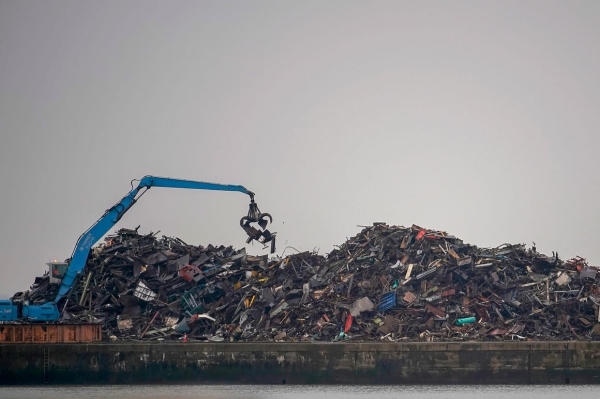The Turkey-shaped hole in the EU’s new waste export regime
New rules will allow huge volumes of EU trash to keep flowing to Turkey, despite the country’s struggles to process it.
The EU has declared it’s time to stop shipping plastic trash to nations that can’t handle it — unless that country is Turkey.
The bloc this month revised its waste export rules, banning plastic waste shipments to non-OECD countries, amid reports of the environmental and health damages wreaked by EU exports. The revamp is part of the European Green Deal’s bid to slash the bloc’s waste generation.
The deal still allows shipments to OECD countries, however — a major concern for environmental and public health campaigners, who point out that some members aren’t well-equipped to handle EU waste.
That includes Turkey — the destination for nearly half of the EU’s waste exports — which has a poor track record on recycling and protecting residents from the resulting plastic waste fumes.
In an OECD report from 2020, Turkey ranked last among member countries for municipal waste recovery rates. Research conducted by Human Rights Watch alleges the government "fails to enforce laws and regulations that require strict licensing and regular, thorough inspections of recycling facilities and occupational health" — impacting the well-being of workers and residents of neighboring communities.
Under the new EU rules, the European Commission will monitor exports to OECD countries to ensure they don’t have a “significant impact” on the environment or human health, and that the waste is adequately managed and not shipped elsewhere. After two years, if an assessment led by the Commission shows an OECD country does not meet those conditions, an export ban could also apply to that country.
Deputy ambassadors are set to approve the final deal on Wednesday, according to a Council press officer, at which point the final text will become public. Experts say whether these new rules are truly effective or not depends on just how thorough the assessment for OECD countries will be.
"At risk of sounding like a broken record, the devil’s in the detail," said Lauren Weir with the Environmental Investigation Agency.
Parliament’s partial win
The European Parliament had campaigned for a blanket ban on all plastic waste exports, including to OECD countries like Turkey.
But ultimately, it conceded to pushback led by countries such as Ireland, which wants to keep sending its plastic trash to the U.K., another OECD country. The Netherlands, according to Dutch media outlet NRC, also opposed the measure.
"It’s obviously a serious step back from the ambition of the original proposal of the [European Parliament]," said one Council official who was involved in the negotiations and was granted anonymity to speak candidly about the discussions. "If we are so sure it should be done, we should have done it now."
But one parliamentary assistant close to the negotiations, also granted anonymity to discuss the talks, stressed that the two-year assessments for OECD countries "will be key," adding: "I don’t see how such an assessment could provide justification to continue sending to problematic countries like Turkey."
Nations must have implemented "requirements designed to ensure that plastic waste will be recycled in an environmentally sound manner," for example, and "specific enforcement and inspections of shipments of plastic waste," according to final amendments seen by POLITICO.
Environmental campaigners say that’s likely not the case in Turkey, where research shows people living near recycling facilities face negative health impacts from air pollutants and toxins.
But NGOs warn that, for now, the conditions under which a country like Turkey would face an export ban in the coming years are still unclear, with the particulars of the Commission’s assessment still imprecise.
Until the final obligations for waste shipments to OECD countries are made public later this week, it’s hard to know how effective they will be, said Weir, from the Environmental Investigation Agency. "It could be the case that the obligations set out act as de facto restrictions for certain OECD recipients of EU plastic waste exports," she said, "But this remains to be seen and of course hinges on the detail of what will be agreed."
Sedat Gündoğdu, a microplastics researcher at Turkey’s Çukurova University, wants more clarity on how exactly the assessment would be carried out — the amendments seen by POLITICO simply state the Commission will "exercise specific scrutiny" regarding the exports to OECD countries.
He also warns that the new rules could backfire and make an already tenuous situation in Turkey even worse, if exports are allowed to continue. With the EU no longer able to send its waste to non-OECD countries — and not having sufficiently improved its own recycling capacities — the burden on Turkey is likely to grow.
That risks harming workers in the country’s overstretched recycling industry, Gündoğdu argued.
"They should come to visit the country and to see what is happening inside this industry, how things are going," he said. "Hundreds and thousands of immigrants working in these facilities with really bad conditions without any social security, any occupational health standards."






